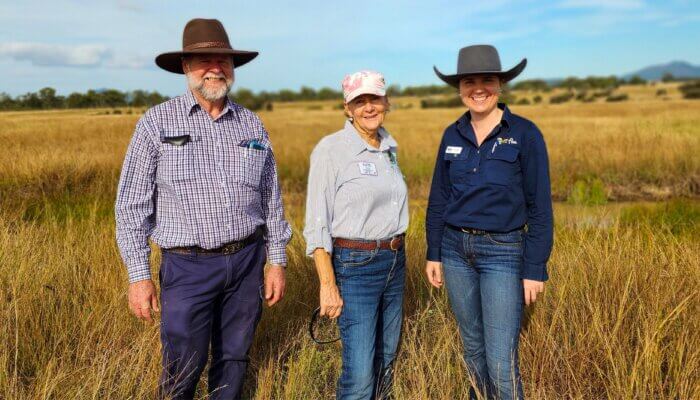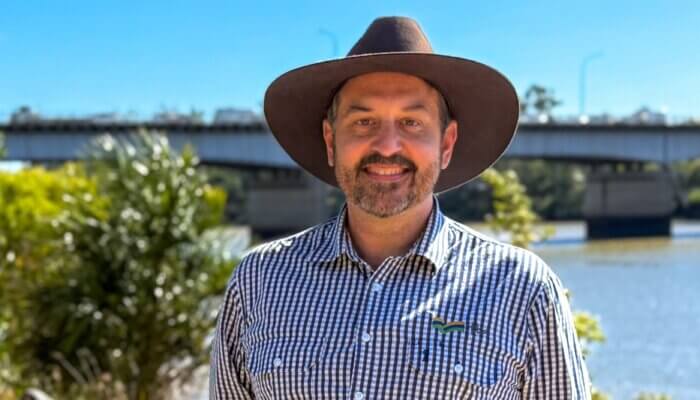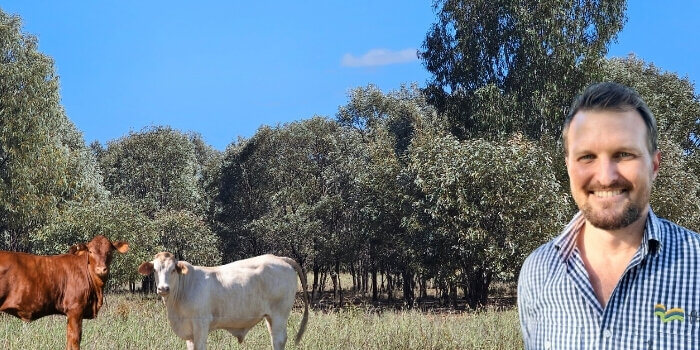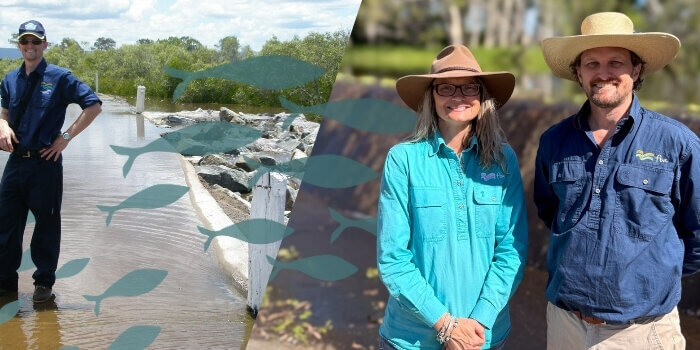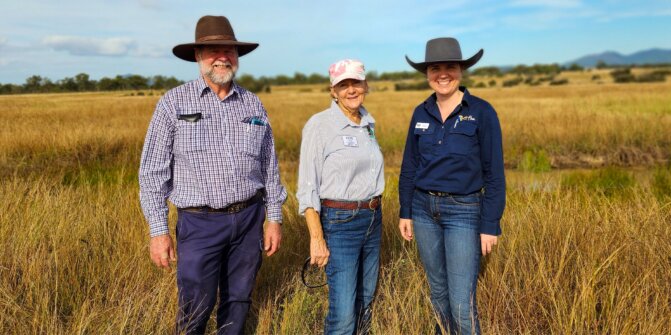
Built to Last: Practical, Affordable Grazing Solutions
Posted on August 21st, 2025
Five years ago, central Queensland grazier Kaye Black teamed up with FBA to heal a problematic gully. Fast forward to 2025, she’s proud to share how the practical and cost-effective solutions have transformed her paddocks.
Kaye’s property, Sandringham Plains, stretches across 316ha of country north of Rockhampton. The property operates as a cattle breeding enterprise, running between 80 and 100 head annually.
Kaye, who has devoted her life to managing cattle, moved to Sandringham Plains in the 1970s. After living away from Sandringham Plains for 20 years, she returned with the keen objective to improve soil health through pasture management.
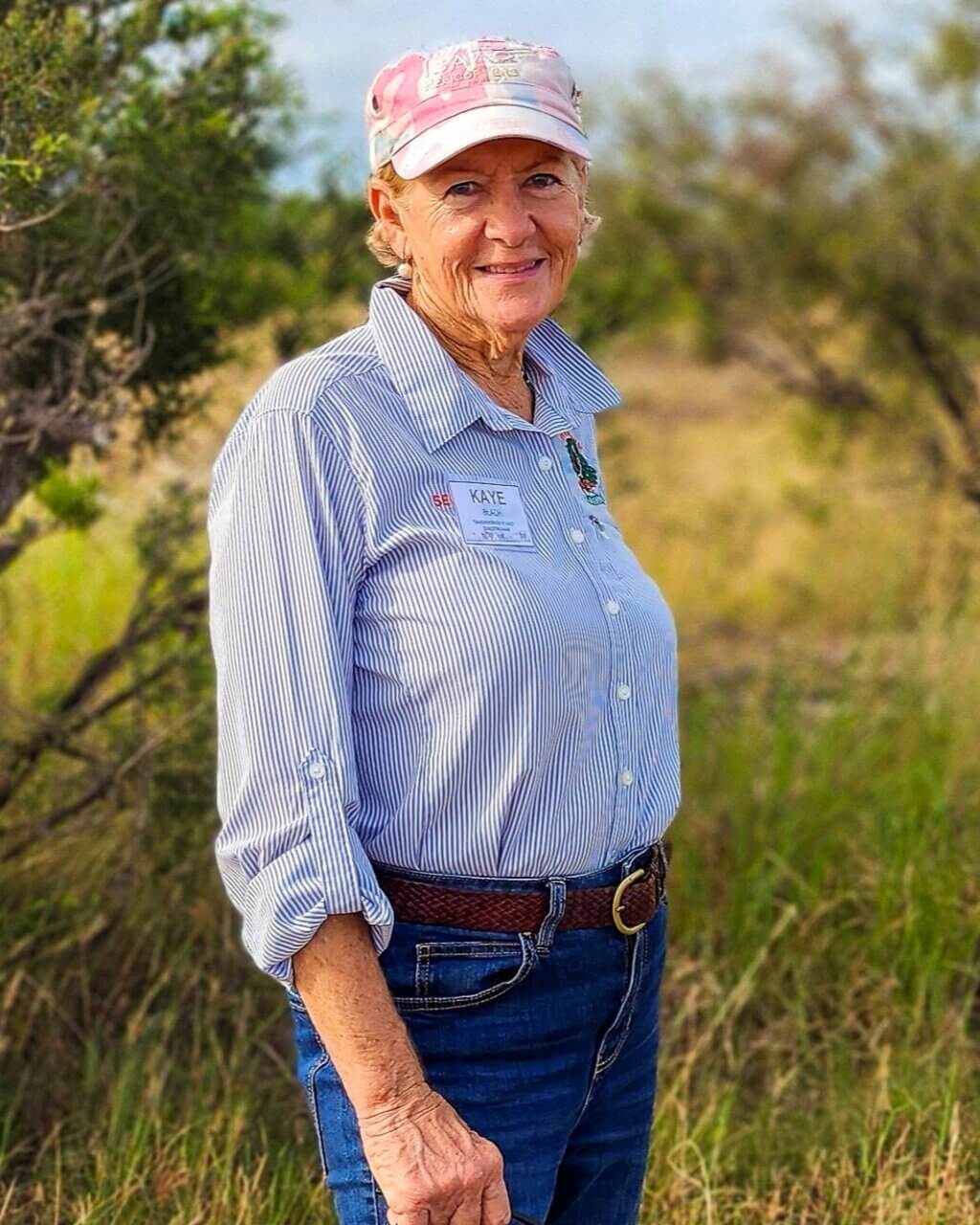
Like on many central Queensland properties, past land clearing had led to erosion.
Kaye couldn’t stand by and do nothing while a gully ate away at her country.
“I could see I was losing the country at a very fast rate,” she said.
“It was getting worse and worse. Something had to be done.”
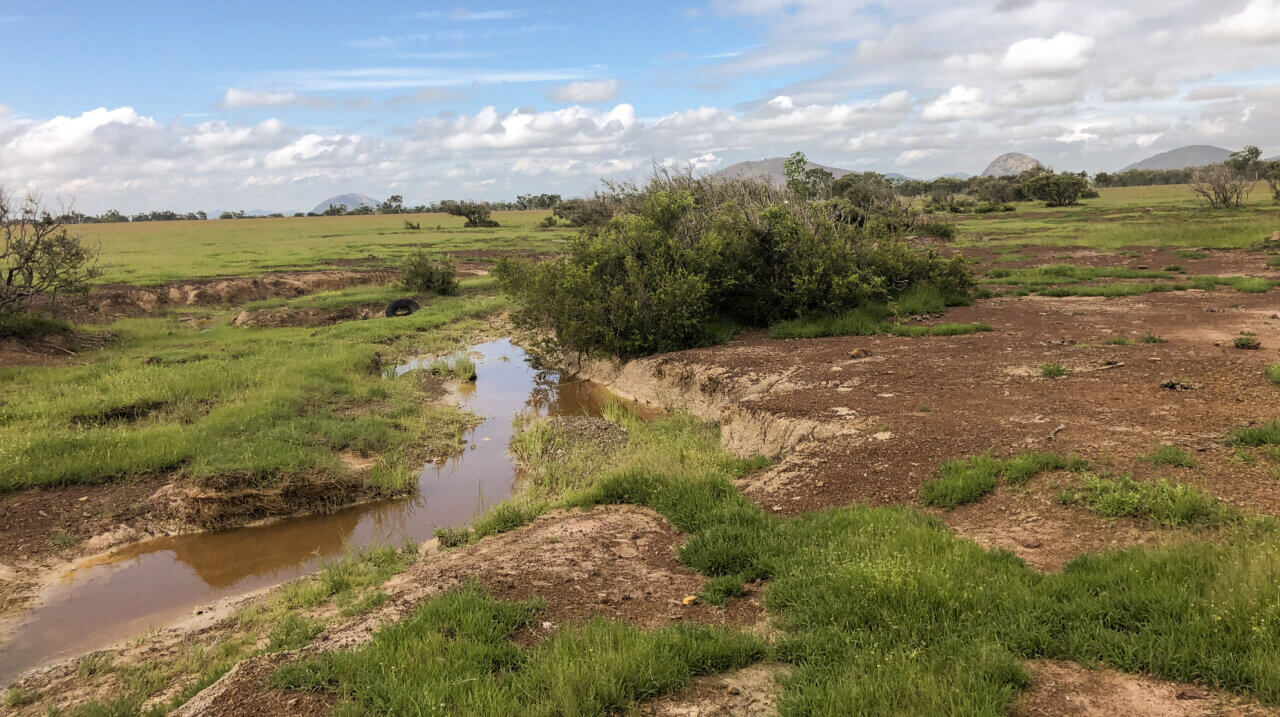
Ready to make a change, Kaye got chatting to FBA staff at a workshop and asked what solutions were available. It wasn’t long after this meeting when FBA visited Kaye’s property in 2016 and crafted a tailored property management plan.
Soil Conservation Adviser John Day was brought to the property by FBA to design the erosion control rehabilitation strategy to stabilise a gully.
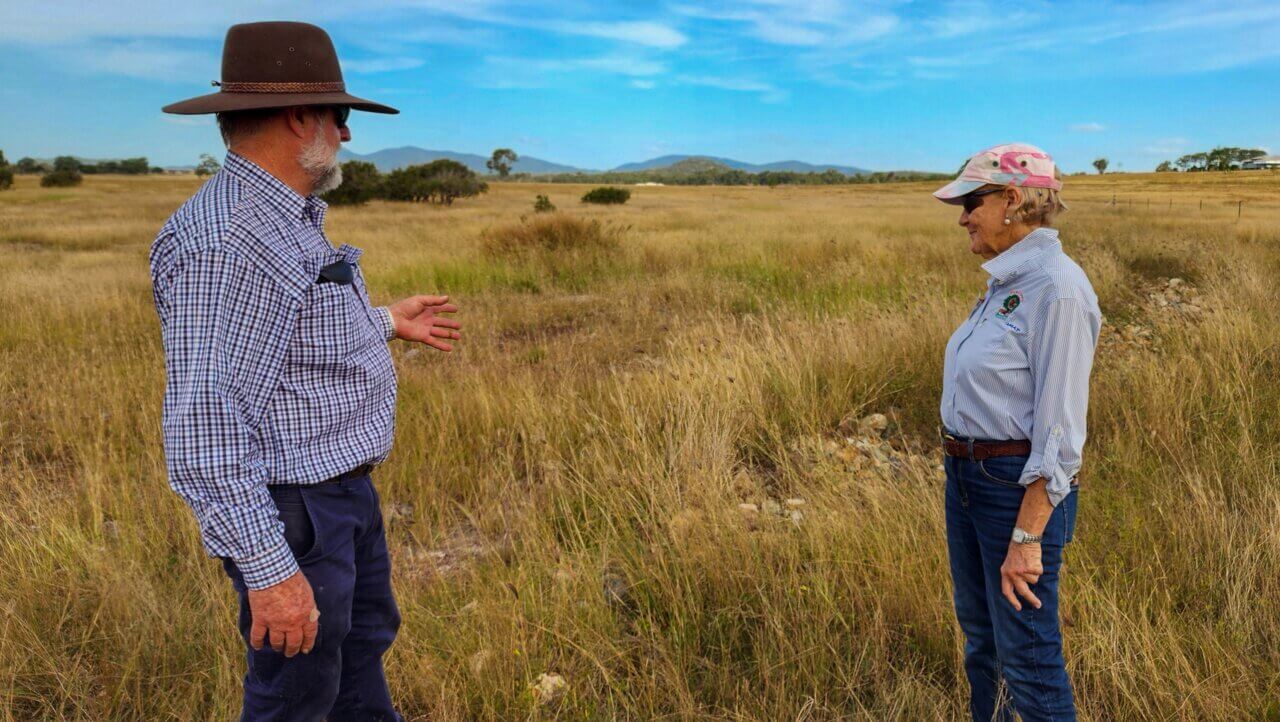
By the end of 2020, FBA had restored the gully on Kaye’s property using a combination of tried and tested erosion control methods to slow the flow of water and combat erosion. Funded through the Grazing Resilience and Sustainable Solutions (GRASS) program, the project included fencing the gully to exclude livestock, stabilising the head of the gully with rock and installing seven Porous Check Dams (PCDs) along the gully to trap sediment and encourage grass growth. Additionally, a contour bank and six whoa-boys were also installed above the gully to manage overland flow and prevent further degradation.
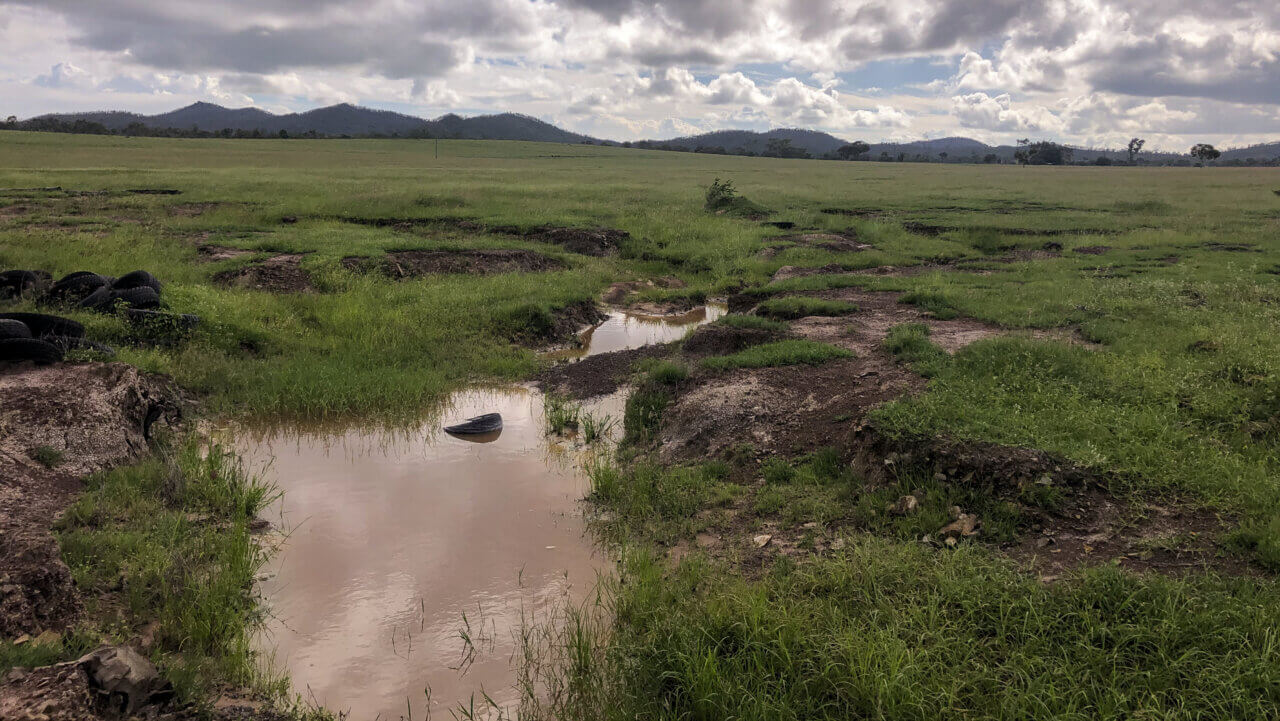
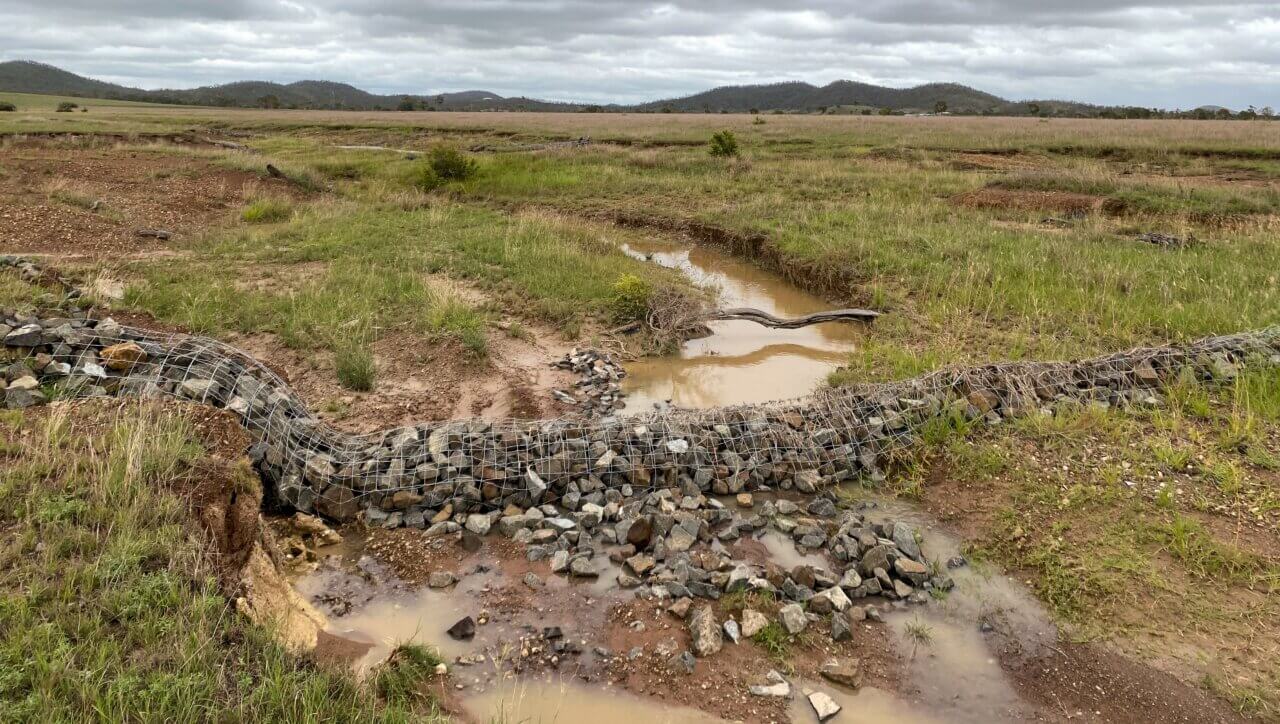
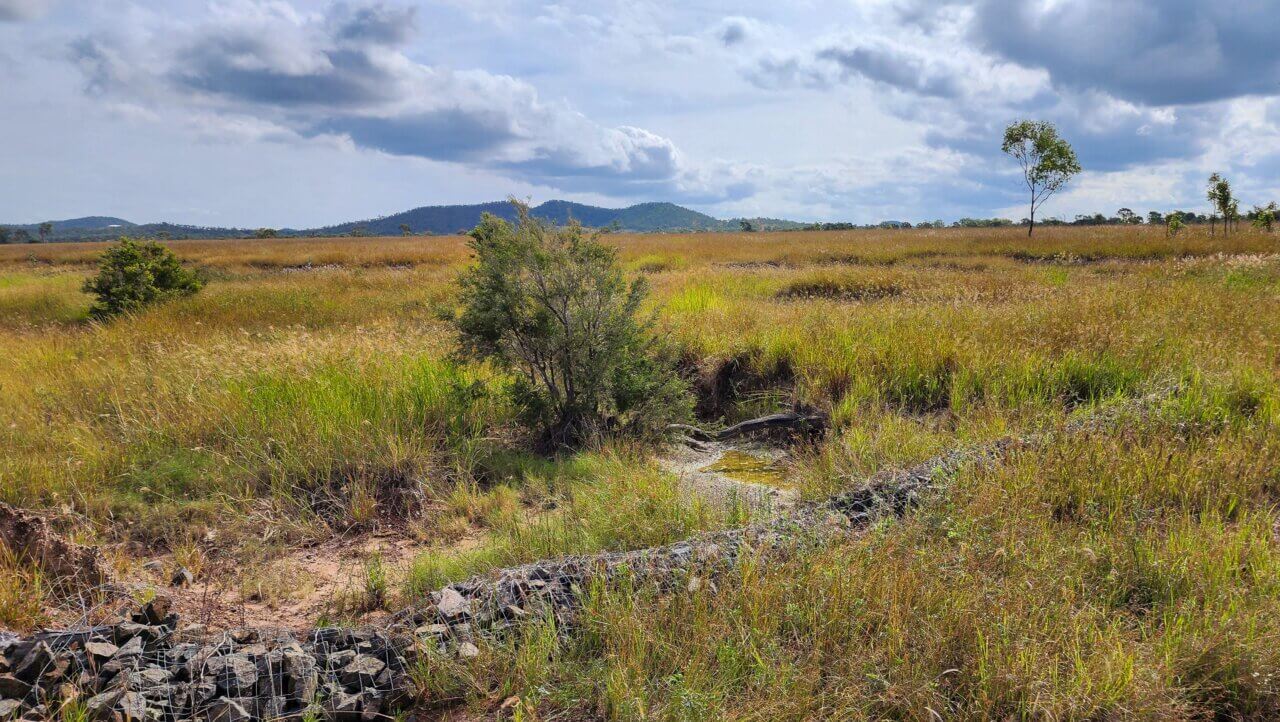
For Kaye, the results were rapid.
“As soon as the PCDs were finished, we got a big fall of rain. I raced down there the next day, and it was instant how much of an improvement it was. You could see how much it slowed the water down,” she said.
“It was very exciting to actually see it working.”
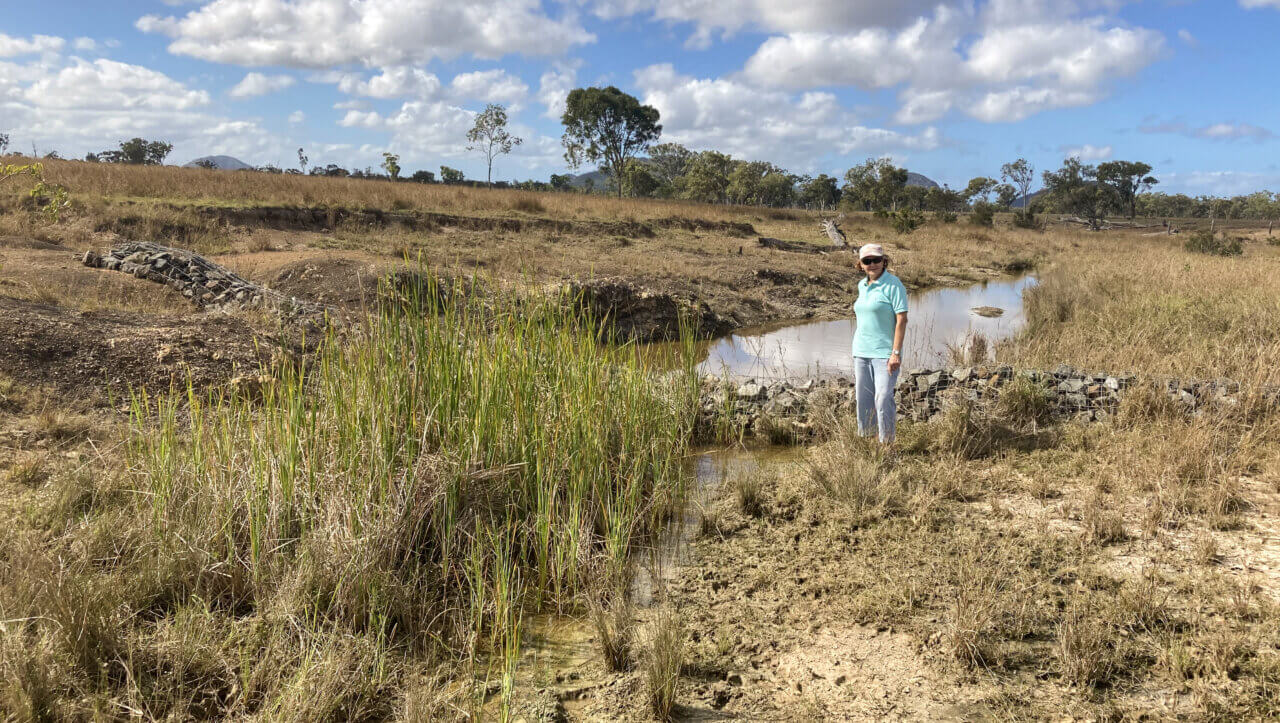
Five years later, the works are withstanding the test of time. Kaye is thrilled with the results of having a stabilised gully.
“Because the works have slowed the flow so much, the land is slowly regenerating all by itself,” she said.
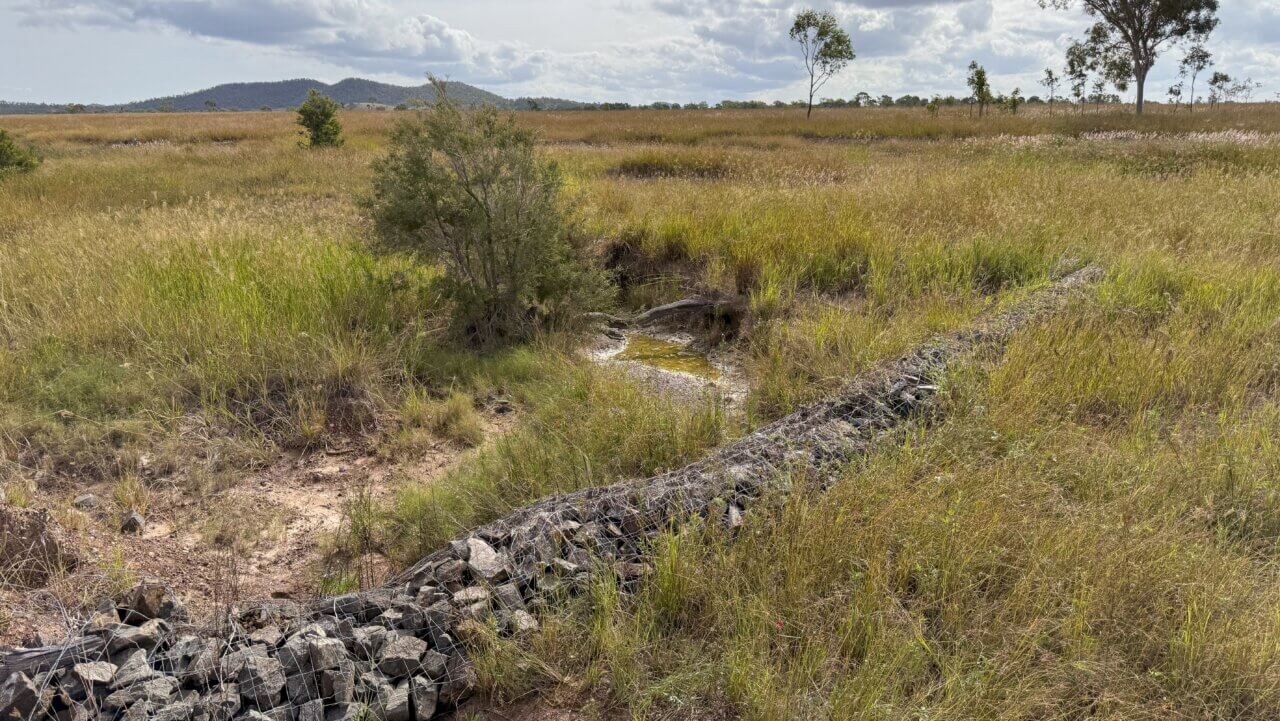
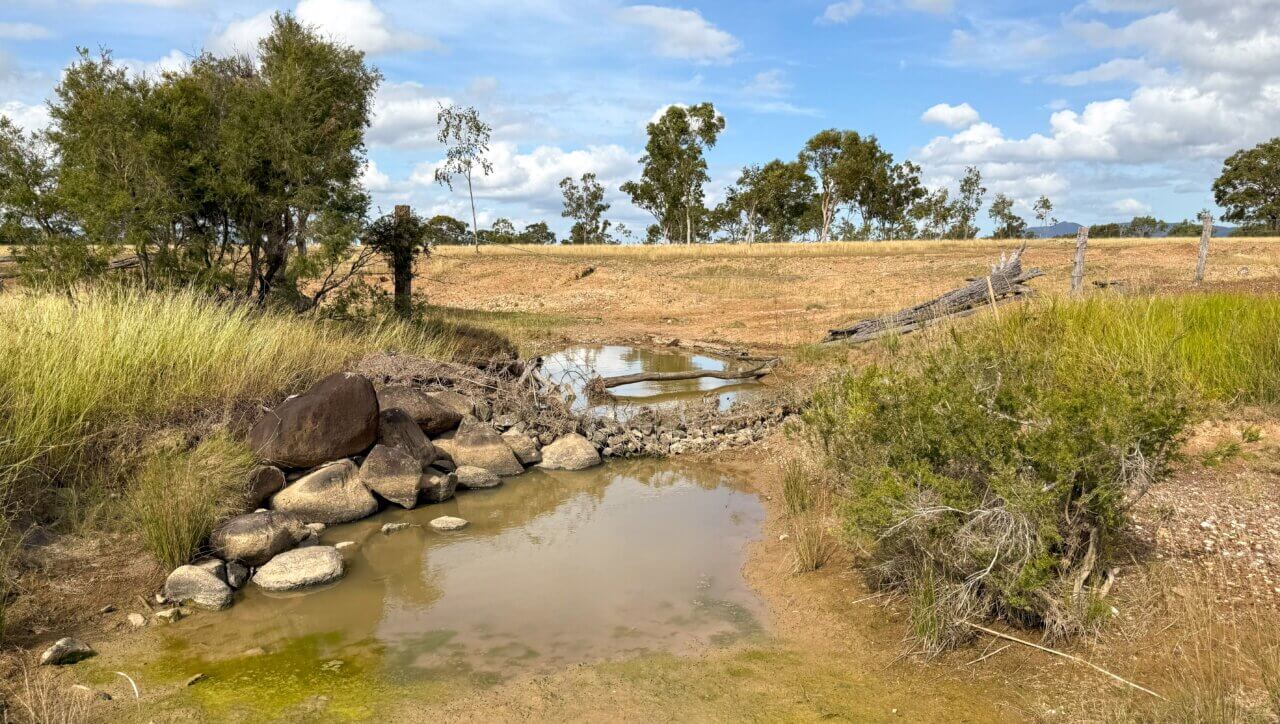
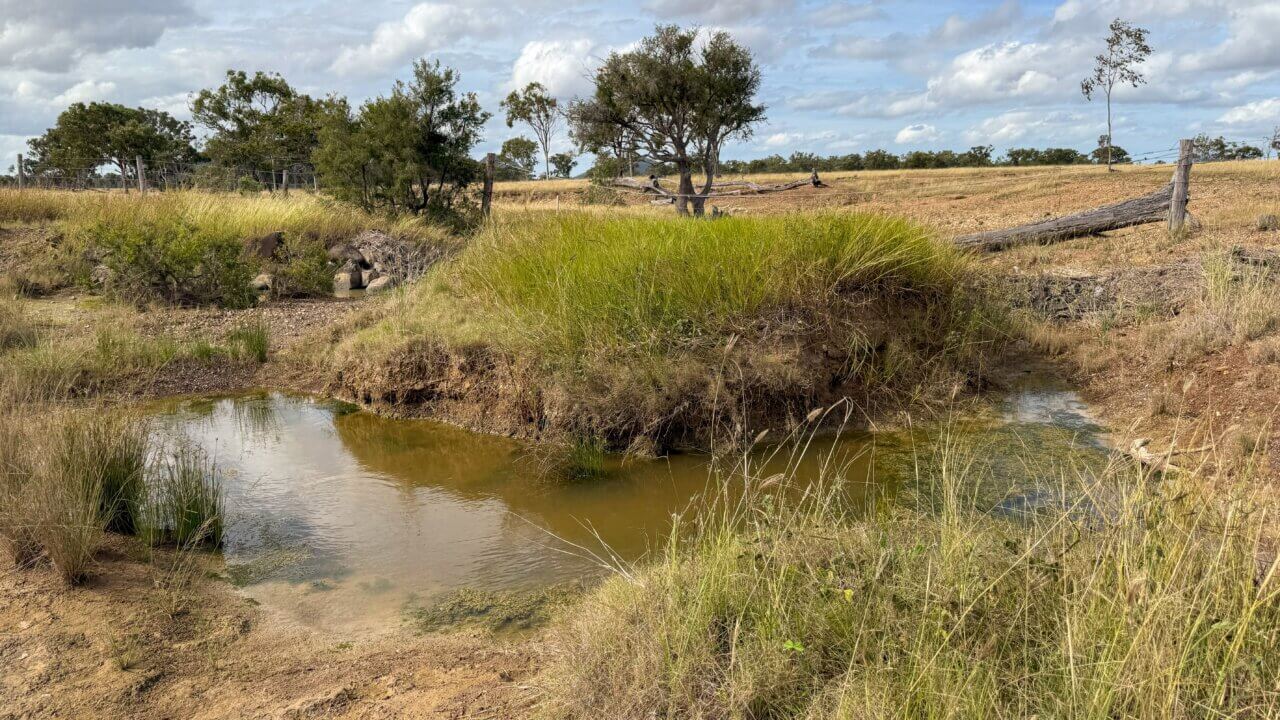
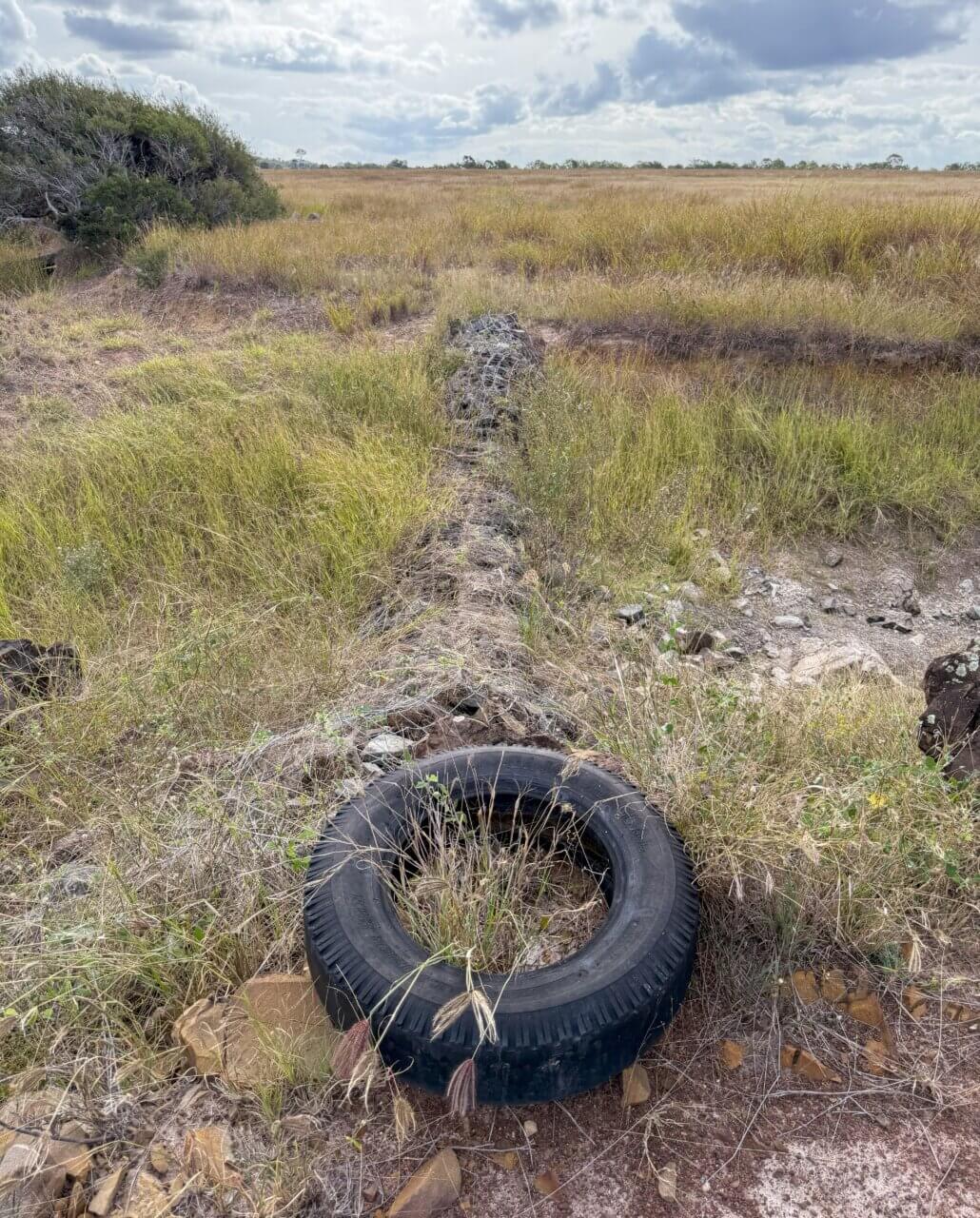
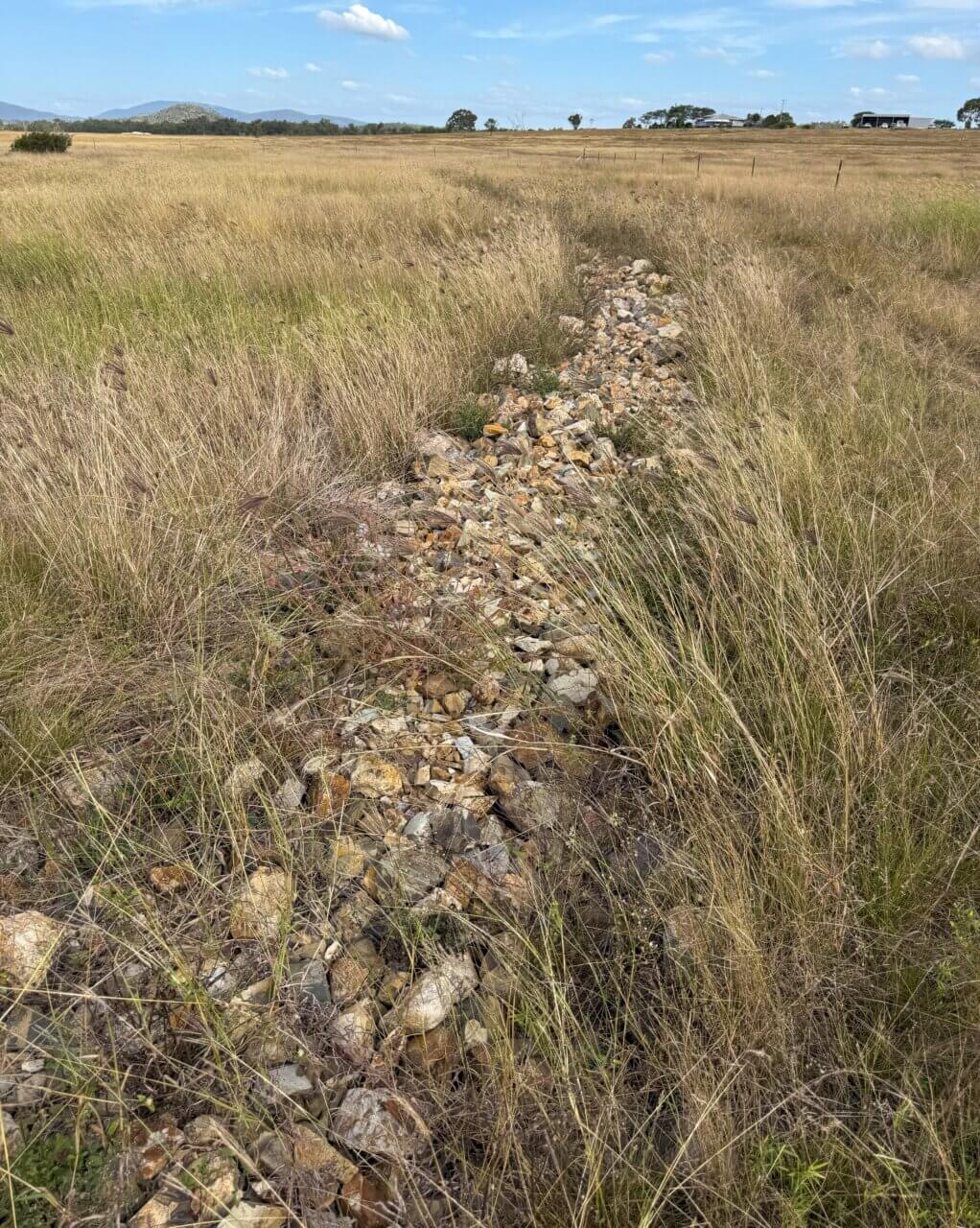
Recently, Kaye hosted FBA’s Roots of Resilience workshop at Sandringham Plains where staff, John Day and other central Queensland land managers saw firsthand the improvements in landscape and pastures five years after erosion work was completed. The workshop highlighted how practical, cost-effective erosion control methods can enhance the resilience of a grazing operation.
John said it was brilliant to see how much the landscape has improved, with grass growing over the banks and in the bottom of the gully.
“Prior to works there would have been silt and muddy water going out of the property and down the gully and the waterways. That’s reduced to less than 10 per cent. That’s huge for the environment and for Kaye,” he said.
“She has a reliable little paddock of feed there now that was completely bare before.”
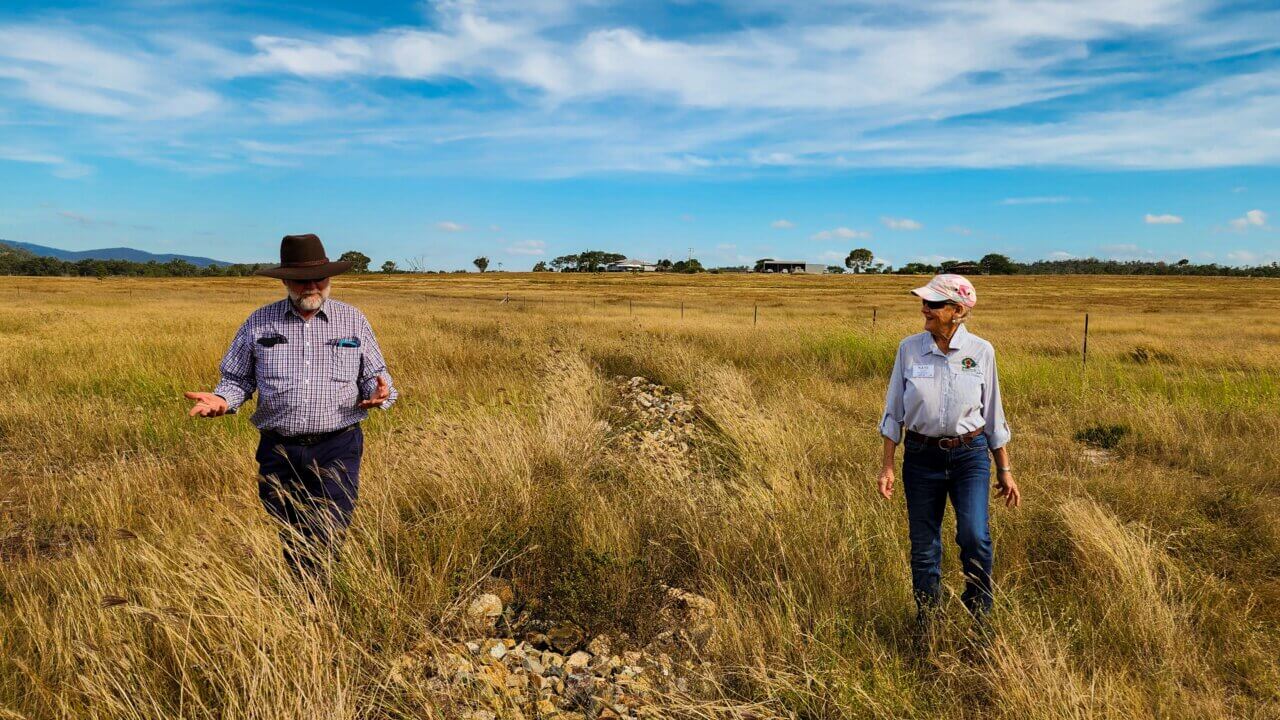
FBA Land Management Officer Sophie Wilkins said witnessing the success of the GRASS program on Kaye’s property reinforces confidence in the designs and recommendations the team provide.
“We have experience in projects that withstand the test of time and have access to a range of consultants with experience in erosion remediation,” she said.
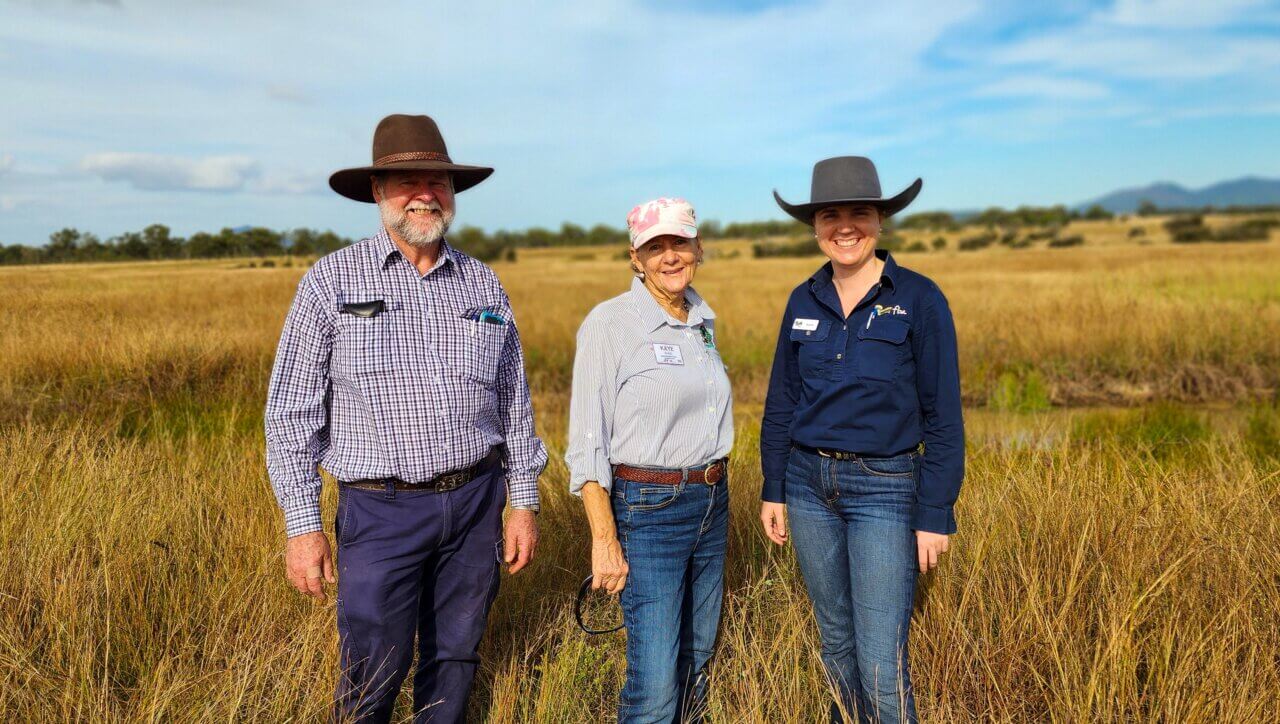
Kaye strongly encourages other central Queensland land managers to reach out to FBA and explore what can be achieved on their property.
“I would not have found these solutions without FBA. Without FBA, the erosion would still be eating away at the land,” she said.
Central Queensland land managers are encouraged to contact FBA to learn more or gain assistance.
The Grazing Resilience and Sustainable Solutions (GRASS) program is funded through the Queensland Government’s Queensland Reef Water Quality Program and delivered by the Department of Primary Industries (DPI), FBA, Burnett Mary Regional Group, and NQ Dry Tropics.






